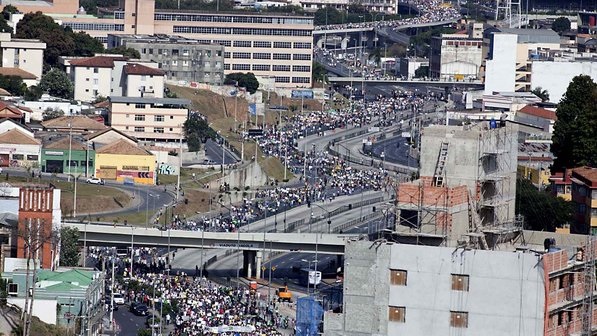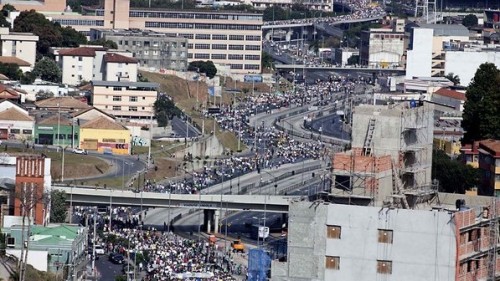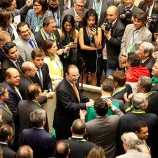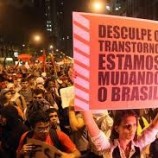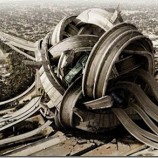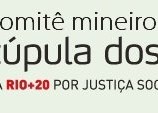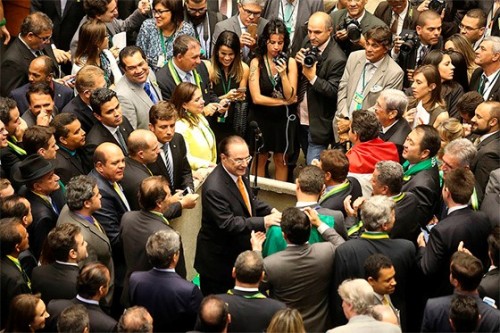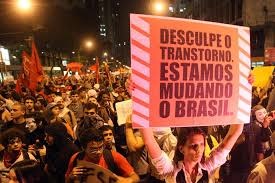In the previous article I raised a few questions. Among them was: what is this movement all about?
It is the insurgency of the indignant against the current political system and its many aberrant flaws. What is the current political system based on? On municipal, state and federal elections which take place every four years, where every citizen over sixteen years old has the right to vote and those over eighteen have the duty to vote for the candidate of their choosing, vote null or justify their absence. Candidates should side with a specific political party. Legislative vote counts are ascertained by dividing the total political party’s vote result by the electoral coefficient which is the result of dividing the valid votes by the total number of vote slots. The most common way for people to get to know “so and so” and his or her “proposals” are via television and radio, where their time varies from party to party, generally giving higher coverage to parties with larger coalitions.
In Brazil the largest polarity is between PT and PSDB. During the election campaign, it is very common to see photos of the candidates with their typical grin pasted everywhere. In truth, it is tremendous visual pollution. I noticed during the last elections that many of these posters ended up with a red ball on their nose. Besides the visual pollution, the noise and garbage spree thrown everywhere, the majority of the population is left irritated during election time. As writer Eduardo Galeano once said, the Latin American youth stands shocked in view of congresses looking like a shoddy excuse for a circus. What is likely to bring a smirk upon a congressman’s face is shamefully expensive for public funds and our own lives above all, since the gears that make this country grow turn with the force of the peoples’ labor. So, it goes without saying that we want a return of this wealth invested in improving the quality of our lives!
Returning to the questions of the first chapter: who is the leader of this movement?
Until now no head mentor of so many people on the street has appeared on the horizon. And for those that thought that every movement in life has to have a Che Guevara, the feeling is left hanging in the air. I personally see this decentralization as something very positive. It shows that we are not part of a herd or pyramid, but that we are awakening the inner leader in each of us, weaving an ever extending network, supported and multiplied by being grounded in values of peace and solidarity. We are connected by an increasingly rapid and expansive access to information. YOU are another I, and I AM another YOU. This is the new paradigm, the new consciousness that needs to manifest itself in the terms of practical life.
To place demands is an important factor, but now is also a time to propose and build. The maturity of this movement happens when we think of how to get there. Perhaps this swarm of newly graduated lawyers could help defend the common interests of the people and conduct a legal process which ensures the POLITICAL REFORM that this country needs so urgently. Since these billboard face politicians do not represent us, how could it work? How could the country organize itself?
I believe that decentralization is essential. Effective mechanisms for society to organize itself, to have a voice and power of decision. The salaries of the legislative powers could be symbolic as they are in some European countries. With lower wages and an end to perks, people with higher callings and a collective nature would be more likely attracted and candidate themselves. If these legislators lived a life closer to the lives of ordinary people, they would gain greater benefits in their own personal human development. After all, politicians should feel that they really are servants of the people. ONLY people with real vocation and technical capacity should assume public positions.
The Brazilian political reform will be the basis for many other necessary reforms. After all, we as individuals as well as the political system and its leaders must be ethical, truthful and transparent even in our inner intentions in order for the evolutionary process to take place.
Related Articles


